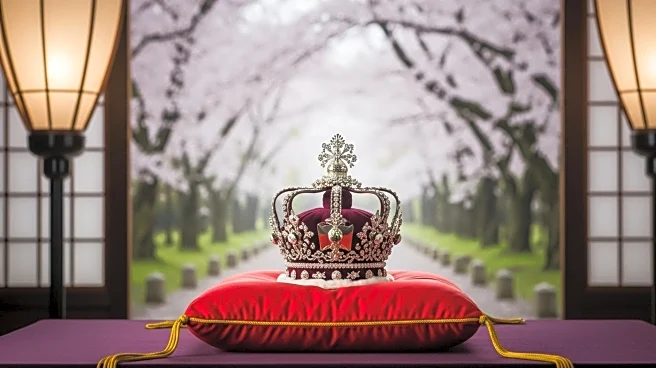What is the story about?
What's Happening?
Prince Hisahito of Japan, the first male royal to reach adulthood in 40 years, is at the center of a succession dilemma for the world's oldest monarchy. Hisahito, a university freshman with a passion for biology and dragonflies, is second in line to the Chrysanthemum Throne. The monarchy's male-only succession policy, established in 1889 and reinforced by the 1947 Imperial House Law, is under scrutiny due to the dwindling number of male heirs. Hisahito's coming-of-age ceremony highlights the urgency of addressing the succession issue, as he may be the last male heir capable of continuing the imperial lineage.
Why It's Important?
The succession dilemma in Japan's monarchy has broader implications for the country's cultural and political landscape. The male-only succession policy reflects Japan's conservative values and has sparked debate over gender equality and modernizing traditions. The potential end of the male lineage could lead to significant changes in the monarchy's role and influence in Japanese society. The debate over allowing female succession or adopting male descendants from defunct royal families could reshape the monarchy's future, impacting national identity and unity.
What's Next?
The Japanese government faces pressure to address the succession crisis. Proposals to allow female emperors and maintain royal status for women after marriage are under consideration. The debate is stalled over whether to grant royal status to non-royals marrying princesses. The outcome of these discussions could redefine the monarchy's structure and influence. Prince Hisahito's role in this debate is crucial, as he carries the burden of the monarchy's future. The government and parliament are urged to reach a resolution to preserve the monarchy's continuity.
Beyond the Headlines
The succession debate raises ethical and cultural questions about gender roles and tradition in Japan. The monarchy's male-only policy is seen as outdated by many, prompting calls for reform. The potential inclusion of female succession could challenge long-standing cultural norms and promote gender equality. The monarchy's future also ties into Japan's demographic challenges, with an aging population and declining birth rates affecting the availability of heirs. These factors contribute to the urgency of resolving the succession issue.
















